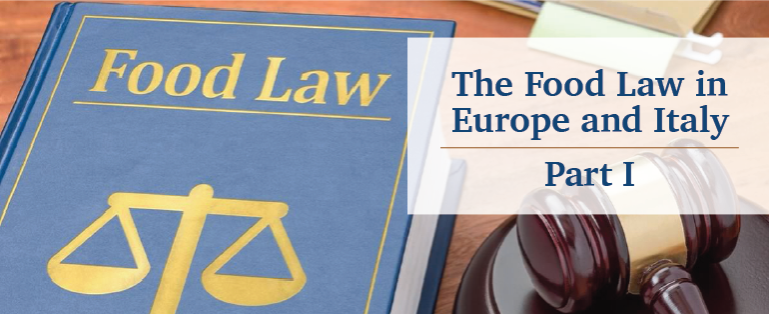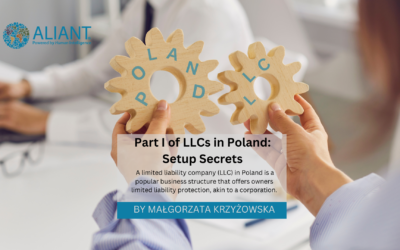In order to operate in the food sector it is necessary to take into consideration the whole legislative system responsible for regulating the matter, highly harmonized in the European Union, within which it is possible to benefit from the opportunities offered from the European single market, consisting of 27 Member States, for almost 448 million European citizens, all subject to the same regulatory framework, applicable both to relations between them and to third-countries wishing to access this market.
The food law consists in Europe of something more than a series of independent laws governing technical aspects of this profitable industry – the largest manufacturing sector in the EU in terms of turnover and employment – such as food safety, labeling and presentation to the consumer, quality certifications or protection of qualities and reputation of products connected to their origin, but it should be read as an autonomous body of rules with general principles and requirements which deserve to be examined in their systemic dimension, being transversal to different areas of law and characterized by a plurality of sources at different levels.
The primacy of EU law on the national rules
The entrepreneur or the investor that wish to enter this market through one of the European countries, maybe to take benefit from the opportunities offered from the European single market, the world’s largest single market area consisting of 27 nations hosting more than 440 million citizens, will have to face a set of rules coming from the EU and depending on the regulatory instruments directly applicable in each Member State with no need of transposition. Over time the Court of Justice of the European Union has developed a fundamental principle that is not provided by EU treaties but that came out from the case law: the primacy of the EU law, according to which before a conflict between aspects of EU law and aspects of national law the first ones will prevail, and the conflicting domestic rule must be set aside.
EU and domestic sources
Summarily, the legal framework for the development of food and feed legislation both at Union and national levels – consistent with the single CMO (the common organisation of the markets in agricultural products, which provides the market support in different agricultural sectors and represents the first pillar of the CAP, i.e. the common agriculture policy: one of the original competence of the European Community) – consists therefore of some fundamental regulations coming from the legislative bodies of the European Union. The most important is the Regulation (EC) No 178/2002, also known as General Food Law Regulation, that embraces the entire food chain from the feed production to the primary production, food processing, storage, transport, distribution and sale. The aim is to protect human life and the interests of consumers which have access to the European single market, ensuring at the same time the correct operation of it. At a domestic level, every Member State provides for internal rules compliant with the European law and establishes public authorities within the national borders entitled to regulate those matters that are left to the individual jurisdictions on the basis of the founding treaties, as well as in application of the principle of subsidiarity.
The competent Authorities
The General Food Law Regulation, that has also created an integrated system to manage the situations of emergencies and crises and RASFF as well (the rapid alert system for food and feed through which it is possible to promptly react in case of detection of any risk to public health along the food chain), has established EFSA: the European Food Safety Authority, an independent agency intended to support with scientific advices the work of the European Commission and of the other institutions involved in the food regulation process. In addition to EFSA and to European Commission of course, which operates primarily through the general directions DG AGRI (DG Agriculture and Rural Development) and DG SANTE (DG for Health and Food Safety), there are several executive agencies and regulatory agencies supporting the EU institutions in food matters and related policies, and practically every food business operator will have to deal with some of them, direct or indirect.
The main regulated issues
According to the free movement of goods, which is guaranteed by the elimination of customs duties and quantitative restrictions as well as through the prohibition of measures having an equivalent effect on the basis of the principle of mutual recognition, every product even from a third country which is in free circulation in the Member States on the basis of Article 28 of the TFEU (the Treaty on the Functioning of the European Union) is basically allowed to be sold without any restriction within the whole EU territory. Among the numerous matters subject to the harmonized regulation there are, mainly: labeling, presentation to the consumer, sales denominations of food stuffs; nutritional and health claims present on the label of food products; voluntary certifications as for example for organic products, for which the production process is also strictly regulated, or for kosher foods conform to the Jewish dietary regulations; protection of geographical signs for some products whose qualities are specifically connected to the area of production thanks to which they possess distinguishing qualities or a reputation generally recognized as PDOs, PGIs and STG; novel foods (innovative food and feed produced with new technologies and processes, or some particular foodstuffs traditionally eaten only outside of the EU), for which a pre-market authorization is mandatory required; GMOs (genetically modified food and feed) for which specific rules have been established to guarantee safe conditions. In addition, there are several other issues whose knowledge is essential to operate legally on the food market, without mentioning tax and customs aspects or import/export outside the EU also in relation to bilateral agreements and free trade agreements to which the EU is a party.
The special regime for wines
The cultivation of vineyards, the production of wine and its commercialization, because of the importance of this market and also for the historical and cultural value of such a peculiar product, have always been subject to a strict regulation and in a way the rules in this sector are responsible of the birth and development of the European food law. The main rules provided for the foodstuffs are only partially applicable to the wine industry, which in many respects is instead subject to specific regulations. One more time the European rules coming from the articles on wine of the actual single CMO determine the wine law of every Member State in relation to several aspects, from authorizations for vine planting to production, bottling and commercialization of wine. Thanks to this, every single wine legally produced in each country can generally be sold without restrictions within the EU, enjoying of the protection accorded in relation to the geographical indications that establish specific intellectual property rights. Moreover, the development of negotiations conducted with foreign countries led to the signing of bilateral agreements and free trade agreements to promote and facilitate the wine trade between European Union and non-EU countries.
FOLLOW US ON LINKEDIN
SEE MORE ALIANT INSIGHTS




